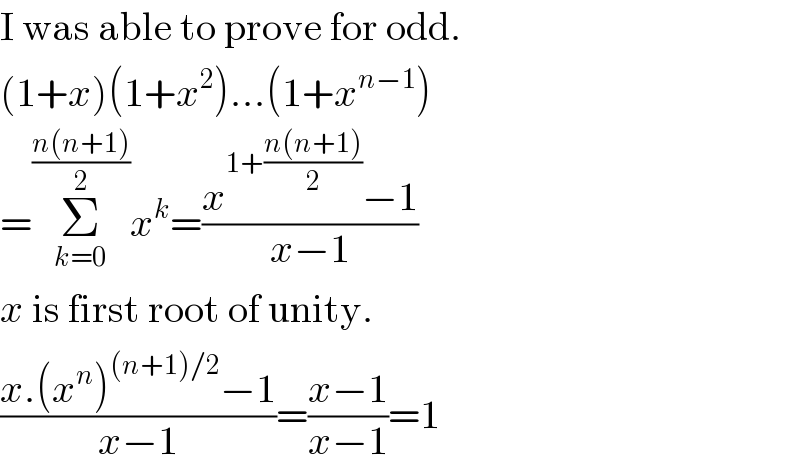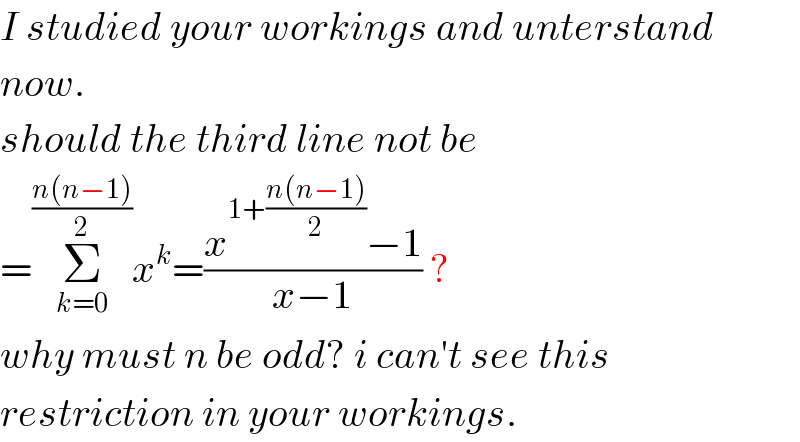
Question and Answers Forum
Question Number 52086 by prakash jain last updated on 03/Jan/19

Commented by mr W last updated on 03/Jan/19

Commented by mr W last updated on 03/Jan/19

Commented by prakash jain last updated on 03/Jan/19
You are correct. The question should 1 for n odd. And 0 for n even
Answered by mr W last updated on 04/Jan/19
![see question above a_k =cos ((2kπ)/n)+i sin ((2kπ)/n), k=0,1,2,...,n−1 1+a_k =1+cos ((2kπ)/n)+i sin ((2kπ)/n) 1+a_k =2cos^2 ((kπ)/n)+i 2sin ((kπ)/n)cos ((kπ)/n) 1+a_k =2cos ((kπ)/n)(cos ((kπ)/n)+i sin ((kπ)/n)) P=Π_(k=1) ^(n−1) (1+a_k )=2^(n−1) Π_(k=1) ^(n−1) cos ((kπ)/n) Π_(k=1) ^(n−1) (cos ((kπ)/n)+i sin ((kπ)/n)) if n=even: at k=(n/2): cos ((kπ)/n)=cos (π/2)=0 ⇒P=0 if n=odd: cos (((n−1)π)/n)=cos (π−(π/n))=−cos (π/n) sin (((n−1)π)/n)=sin (π−(π/n))=sin (π/n) [cos (((n−1)π)/n)+i sin (((n−1)π)/n)][cos (π/n)+i sin (π/n)] =[−cos (π/n)+i sin (π/n)][cos (π/n)+i sin (π/n)] =−[cos (π/n)−i sin (π/n)][cos (π/n)+i sin (π/n)] =−[cos^2 (π/n)+sin^2 (π/n)] =−1 ⇒Π_(k=1) ^(n−1) (cos ((kπ)/n)+i sin ((kπ)/n))=(−1)^((n−1)/2) =1 cos (π/n) cos (((n−1)π)/n)=−cos^2 (π/n) cos ((2π)/n) cos (((n−2)π)/n)=−cos^2 ((2π)/n) P=2^(n−1) cos^2 (π/n) cos^2 ((2π)/n) cos^2 ((3π)/n) ... cos^2 (((n−1)π)/(2n)) P=2^(n−1) [cos (π/n) cos ((2π)/n) cos ((3π)/n) ... cos (((n−1)π)/(2n))]^2 ......????](Q52094.png)
Commented by prakash jain last updated on 03/Jan/19

Commented by mr W last updated on 03/Jan/19

Commented by mr W last updated on 04/Jan/19

